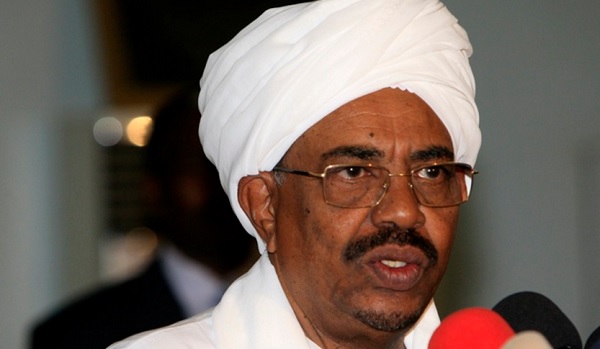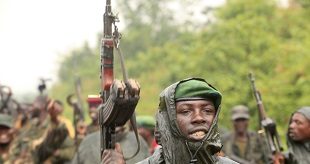
Khartoum, Sudan | AFP |
Sudan’s ruling party on Sunday criticised opposition groups over their strike call, as many public transport buses stayed off Khartoum streets and shops remained shut in a mixed response to the call.
The three-day strike call was to protest a government decision to hike fuel prices by about 30 percent that has led to a sharp rise in the cost of other goods, including medicines.
Several key squares and roads in Khartoum and its twin city of Omdurman were deserted on Sunday morning, the start of the working week in the Muslim country, as many public transport buses remained off the streets, AFP correspondents reported.
Schools in Khartoum were open but many parents preferred to keep their children at home fearing clashes between protesters and security forces.
“My son’s school urged parents to send only grown up boys. My five-year-old son is at home,” Mohamed Khalid, a resident of south Khartoum, told AFP.
The capital’s squares were free of the normal traffic jams, while many shops, cafes and restaurants in downtown Khartoum and Omdurman remained shut.
“There are not many people on the roads, which has impacted my business since I opened in the morning,” said Ahmad Saleh, an owner of a grocery shop in downtown Omdurman.
Restaurant owners said they had told their workers to prepare less food, anticipating a drop in business.
“There is at least a 40-percent drop in business. My usual customers are other shopkeepers and many of them have closed their shops today,” said Ibrahim Mohamed, who runs a restaurant in north Khartoum.
“Some of my workers have also not reported to work today.”
However, state employees turned up for work, transported by government buses to their offices.
President Omar al-Bashir’s National Congress Party criticised the opposition for calling the strike.
“The opposition has no understanding of issues concerning citizens,” deputy party head Ibrahim Mahmoud said in a statement.
“They don’t know what’s happening at the national level. They are only trying to disturb public security.”
Protest over high prices
The authorities are determined to avoid any repetition of 2013 unrest that was sparked by a similar round of fuel subsidy cuts.
It was suppressed only by a deadly crackdown by security forces that drew international condemnation.
Rights groups say that crackdown left about 200 people dead, while the government put the death toll at less than 100.
Khartoum has been forced to progressively reduce fuel subsidies since 2011 when South Sudan seceded and took with it nearly three-quarters of the formerly united country’s oil reserves.
The latest fuel price hike coupled with a sharp fall in the Sudanese pound has triggered sporadic protests.
Groups of protesters have staged rallies in Khartoum but they have been swiftly dispersed by anti-riot police.
“Before the price rise we needed 30 pounds ($ 4.60) to buy our daily vegetables,” said Fatima Ibrahim, a resident of Khartoum.
“Now we need 100 to 150 pounds to buy the same amount of items. What will people do?”
Prices of medicines have shot up on the back of a sliding pound on the black market.
The Sudanese pound has dropped by more than 60 percent against the dollar in the past six months.
“The fall in the currency has definitely affected the prices of medicines, especially those imported by private companies,” Health Minister Bahar Idris Abu Garda told AFP.
The authorities are working to ensure that medicines are available at reasonable prices, he said, as the country on Sunday received the first batch of medicines from the UN Development Programme under a $60-million deal.
 The Independent Uganda: You get the Truth we Pay the Price
The Independent Uganda: You get the Truth we Pay the Price


